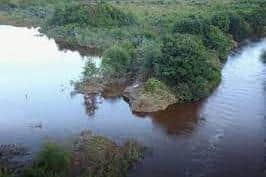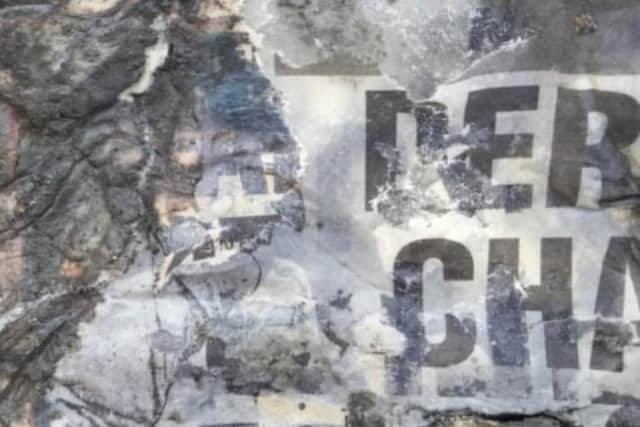NI Water would ‘proactively shut down’ plant supplying Derry drinking water if contaminated by Mobuoy
and live on Freeview channel 276
During a presentation to the Council’s Environment and Regeneration Committee on Wednesday, September 13, NI Water’s Alison McMullan said it would be ‘proactive in shutting down’ the facility.
Sixty per cent of Derry's annual domestic water supply is sourced from the Cloghole abstraction point downstream of the Mobuoy dump and processed at Carmoney.
Advertisement
Hide AdAdvertisement
Hide AdNorthern Ireland Environment Agency’s (NIEA) Claire O’Neill told councillors that a ‘massive amount of work had already been done’ on the site while outlining the next steps in the project.


She said a risk assessment had been completed, and the next steps are to have a public consultation and outline a business case.
If approved by the Department of Finance, the NIEA will procure a contractor.
Ms. O’Neill said NIEA were ‘very aware’ that drinking water contamination was a key risk, and were working very closely with Northern Ireland Water (NIW).
Advertisement
Hide AdAdvertisement
Hide AdDrinking water was of particular concern as the Carmoney water treatment facility is located just two miles from the site on the River Faughan.


Ms. McMullan set out contingency plans should the water become contaminated from the dump.
This includes a reservoir of treated water at Carmoney, containing two days’ worth of drinking water, and access to water from facilities at Dungiven and Coleraine.
She said the treatment process is used for the removal of contaminants like arsenic, E-Coli, and aluminium and that levels of these contaminants in drinking water were well below the minimum regulatory limit.
Advertisement
Hide AdAdvertisement
Hide AdSinn Féin Councillor Alex Duffy described the dump as an ‘environmental disaster’ and voiced concern the remediation project would stall due to a lack of functioning Government.
Ms. O’Neill said that NIEA was focused on the next steps of the project - ensuring that business plans and affordability projections were ready - so work can start quickly.
People Before Profit Councillor Shaun Harkin said the project highlighted the ‘very, very serious problem with our water provision’ and said he was concerned that the project would prioritise areas near the A6 road rather than the Faughan.
Ms. O’Neill said the project was an ‘integrated solution’ that would not prioritise one area over another.
Advertisement
Hide AdAdvertisement
Hide AdColr. Harkin expressed concern there wasn’t enough testing for plastics and other toxins.
Ms. Mc Mullan said there were no standardised tests for plastics in water but that NIW is very involved in research in that area.
SDLP Councillor Declan Norris said the dump site has caused ‘a lot of emotion from Derry residents’.
Ms. McMullan said NIW would be ‘proactive in shutting down’ Carmoney treatment plant if it became contaminated.
Advertisement
Hide AdAdvertisement
Hide AdShe said drawing water from other treatment centres is a medium-term solution.
SDLP Councillor John Boyle wanted to know how much the project would cost and how long it would take.
Ms. O’Neill said affordability and cost estimates could not be disclosed yet, and that the estimation will be ‘complex and challenging’.
Referencing a similar remediation in Kildare, she said it would take between three and five years.
NIEA hopes to submit its business case by the end of this year or early 2024.